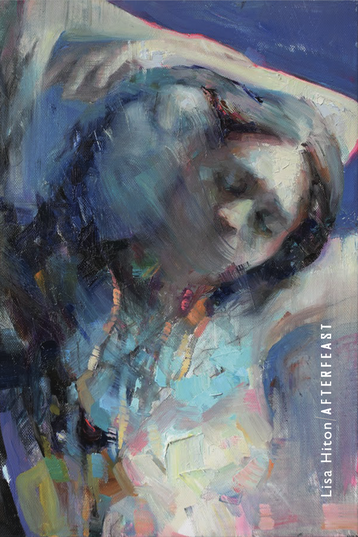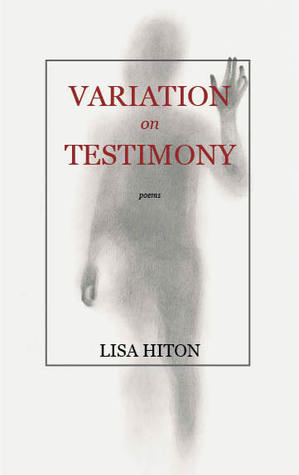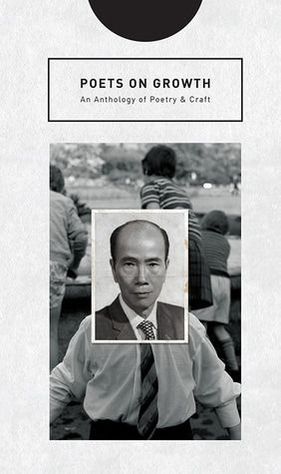AFTERFEASTLisa Hiton’s Afterfeast begins by considering philosophical questions arising from the experience of desire and intimacy: What does love reveal about — and make possible within — the individual? Can we ever truly understand another person’s experience of the world around them? To what extent is the other ultimately inaccessible, a world unto herself? Pillared by massive, ambitious poems in the tradition of Modernism, these lyrics imbue landscapes as varied as Greece and America with new tension, new significance, as the speaker searches for answers to these provocative questions of love and inheritance. Through her graceful curation of imagery and enviable command of narrative, Hiton ultimately transforms our understanding of history and desire.
|
PRAISE FOR AFTERFEAST
“Lisa Hiton’s Afterfeast grapples with big stuff—painful history, gorgeous and fraught geographies, elusive sexual identity—in an authentic, dauntless voice that lends to these large subjects a gripping intimacy. To read these poems is to stand among haunted ruins on ‘the hot slab of history,’ to witness different kinds of survival, how disappeared and durable spaces endure alike in time, and in a mind. I envy readers their first entry into the ripe world of this book. A stunningly mature debut—symphonic and bracing and profound."
—Maggie Dietz, author of That Kind of Happy
—Maggie Dietz, author of That Kind of Happy
“These brilliant poems are covertly grounded in metaphysical questions, such as: Where is the line between one’s ever-evolving consciousness and the only slightly more static ‘material’ world? And the brain, is that behavior or matter? And love, what’s that? To explore these questions, vast categories and fluid distinctions are fractured and then woven back together to create an oracular, constructed self—a like-minded speaker, who, like us, has five senses as well as countless more that extend perception into other realms. This speaker lives in a dream world of her own making that is set, like a body inside its skin, in the real world that chance has granted her. She—American, Jewish, lesbian—lives inside history and dislocation, inside death and its sister, persistence (“rotgut of pine needles. / Bees do a deathhurdle over the edge, yet I do not transform”). In ‘Kavala,’ titled for the ancient Greek city that was once known as Neapolis (new city) the moon says: ‘I // tell you / what this silence stands for’. The voice of the timeless lyric moon is the poet’s voice. Her voice becomes the voice of Time talking to Space about what it is to be human. And yet, in the world of these poems, as in our world, we also have Formica, Pringles, melting butter and a matching yellow swimsuit. In other words, we have all the realities: the real, the surreal, the unreal, and the existential irreal. We need them all because any self, poetic construct or flesh-and-blood, inhabits all of these and stays busy trying to make sense of the ways in which they intersect.”
—Mary Jo Bang, winner of the National Book Critics Circle Award
—Mary Jo Bang, winner of the National Book Critics Circle Award
Variation on TestimonyVariation on Testimony is Lisa Hiton's debut chapbook. These poems explore gender and sexuality in varied landscapes and poetic modes as the speakers encounter secrecy and violence across many intersections of America's land and consciousness.
|
Poets on GrowthPoets on Growth is an anthology of reflective essays and poems by emerging and established contemporary poets. These essays seek to illuminate and document how poets enter and grow into their writerly selves on the page and in the literary communities.
|
Praise for Variation on Testimony
As soon as we witness the women standing—grieving—on the bridge in Lisa Hiton’s arresting chapbook Variation on Testimony, we know the women exist in peril: it is here on the bridge, suffering from the aftermath of an assault, "where I become violent," Hiton tells us, "when I could have been lovely." Variation renders both the actors and recipients of violence in all sizes, from the “helicopters grinding their teeth” after the mass attacks in Boston and Sandy Hook to the singular “hollow, spongy”
sound a man’s arm makes as it smashes a woman’s shoulder in Chicago—and in her deft modulation, Hiton refuses us any easy break from her work bearing witness. She conjures a world that holds queer women in its beautiful particularity while simultaneously facing unceasing cruelty: "I want to make a mythology out of the image
in the window," Hiton writes, "you picking tomatoes. / It always rains on the lover before she dies." These incisive, imagistic poems bring the violence that some might only ever see as shadow forever into the light. We need them more than ever.
Rachel Mennies, author of The Glad Hand of God Points Backwards
"Clear-eyed, Lisa Hiton's poems of witness are sobering and fiercely necessary. They explore the violence--internalized and externalized, social and political--queer women endure and survive. These poems think through lyric, the lushness of an inner life never extricated from our contemporary moment. Still there is room for lusciousness here. Like Golden Age Dutch paintings, Hiton has an eye for light and food and love. I'm thankful for these unflinching poems.
Derrick Austin, author of Trouble the Water
Confident and vivid, Variation on Testimony swings effortlessly between the abstract and the deeply personal. Every image seems newly constructed even when it's referencing the oldest tropes.
Stephanie Pushaw, from the judge's citation
Throughout the collection, Hiton strikes an impressive balance between tenderness and threat, between the fragmented image and fully realized scene, between what is said and what is palpably unsaid.
Caylin Capra-Thomas, from the judge's citation



